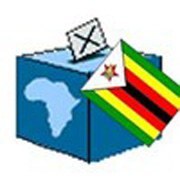
THE Zimbabwe Electoral Commission (ZEC) is treading on a thin line as the electoral body prepares to conduct and supervise the July 31 polls amid mixed views over its performance.
REPORT BY PATRICE MAKOVA ZEC has long been perceived as being biased.
In the March 2008 elections, when the electoral body was chaired by Justice George Chiweshe, results were suppressed for several weeks while securocrats allegedly decided on a plan of action.
A Presidential election run-off was eventually ordered on June 27 after no candidate garnered a 51% majority, amid concerns that the long delay in issuing results was an attempt to rig the outcome in favour of President Robert Mugabe.
MDC-T leader Morgan Tsvangirai had won the first round with 47% of the vote, with Mugabe getting 43%.
But the results of the subsequent run-off were not recognised as credible by the international community due to widespread violence and intimidation of opposition supporters.
While some analysts were of the opinion that the new leadership of ZEC was doing its best to be professional and transparent, especially after Justice Rita Makarau took over as chairperson, others say the electoral body is still compromised because of its long association with the government.
Makarau was appointed ZEC chairperson in March, a few days before the Constitutional Referendum, taking over from Justice Simpson Mutambanengwe who resigned in February for unclear reasons after two years at the helm of the institution.
- Chamisa under fire over US$120K donation
- Mavhunga puts DeMbare into Chibuku quarterfinals
- Pension funds bet on Cabora Bassa oilfields
- Councils defy govt fire tender directive
Keep Reading
Elections Resource Centre (ERC) director, Tawanda Chimhini said Makarau had brought some breath of fresh air to the electoral body.
Makarau has tried to not only engage with election stakeholders, but also to be accountable through answering raised concerns in a “balanced and sober” manner, he said.
“She has also provided some balance to ZEC given the baggage that members of the former commission carry,” said Chimhini.
But overall, he said, ZEC has appeared more interested in approaching the July 31 election quantitatively rather than qualitatively.
“For instance, the preoccupation appears to be to complete electoral processes at a cosmetic level rather that fulfilling their constitutional mandate of delivery processes that allow full, equal and effective participation in a transparent and credible electoral process,” said Chimhini.
Political analyst, Clever Bere said Makarau has so far been firm and tried to bring credibility to the electoral processes.
“But the decision not to accredit the Jimmy Carter Foundation has done harm to their efforts. The running of the election itself is the one thing that is going to give us the opportunity to get to see her true credentials,” he said.
Crisis in Zimbabwe Coalition (CiZC) executive director, MacDonald Lewanika said the entrance of Makarau as ZEC chairperson was a good thing as she was a respectable judge.
He said Makarau has shown that she has the capacity to make critical decisions, citing the extension of the sitting of the nomination courts and voter registration to midnight of June 28 and July 09 respectively.
“She is responsive to urgent issues, but what has happened so far is not enough to judge her conclusively,” said Lewanika.
But he said ZEC’s performance would be judged on the way it conducts itself during the ongoing campaign period and the efficiency and transparency in dealing with poll results.
Lewanika said ZEC has been hesitant to take responsibility and ownership of some of the electoral processes such as the voter registration exercise, carried out by the Registrar General’s Office.
He said the nomination court sat with no observers in place, while Civil Society Organisations (CSO’s) were only recently accredited to conduct some form of voter education.
The CiZC director said the electoral body has also failed to prevent biased reporting and hate speech by state-controlled media. The Electoral Act compels public media to ensure fair coverage of all political parties during the campaign period.
Zimbabwe Elections Support Network (ZESN) chairperson, Rev Solomon Zwana also agreed that ZEC has tried its best in consulting stakeholders and being objective as much as possible.
But Zwana said ZEC has on the other hand shown serious limitation in controlling supporting organisations such as the Police and the RG’s office.
“That limitation has affected their capacity to deliver,” he said. “If they [ZEC] are the core of the electoral process, then they need to have authority and control over everything.”
Zwana said the country’s legislation has to be amended to ensure that ZEC was in full control of all supportive institutions during the election period.
But Bulawayo Agenda executive director, Thabani Nyoni said showing a friendly face and merely consulting stakeholders without taking on board their suggestions was not enough to convince people that ZEC was acting above board.
He said it was difficult for ZEC to do work considered credible considering the organisation’s history and strong links with Zanu PF and securocrats.
Nyoni said while ZEC was saying it was ready to conduct the elections; treasury has indicated that there was no money for the exercise.
He said there was no clarity on how 87 000 people, mostly police officers and soldiers, were allowed to take part in the special vote which begins today.
Only time will tell whether Makarau and ZEC will be able to stand up to the massive pressures from the political and military establishments in order to organise credible elections, analysts said.









